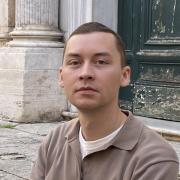Status
Scientific disciplines
Research direction
Digital Science and Technology
Affiliate site
Lyon
Alumina-based catalyst supports are used for biomass conversion processes under development. They consist of multi-scale porous materials, obtained in most applications after calcination of boehmite powders (aluminum hydroxide precursor of alumina) and composed of dense alumina nano-platelets with complex arrangements. Modelling the physical phenomena dictating the arrangement of the nanoplatelets, with deterministic methods, is difficult and extremely expensive in terms of computational time, prohibiting the calculation of a sufficiently large representative volume of the microstructure. A precise model of this microstructure is however necessary for the calculation of the textural (surface, pore volume), diffusion and mechanical properties, essential for industrial applications.
The PhD student will enrich an existing 3D geometrical model of the microstructure by taking into account the interaction properties between the different faces of the boehmite nano nanoplatelets, which are known to dictate (partially) the final arrangement of the microstructure and the texture of the aluminas obtained after drying and calcination of these solids. More precisely, he/she will work on a new random morphological model simulating the geometry induced by the attraction between the exposed faces of the nanoplatelets. A deep learning strategy will be developed to accelerate computationally intensive phases of the simulation process. This type of microstructure model, adjusted to real materials and taking into account synthesis and shaping constraints, will allow to explore by numerical means a range of new materials by optimizing in a realistic and achievable way the manufacturing parameters, and thus aiming to increase the span of their utilization. The developments will be also integrated into the open access platform plug im!: www.plugim.fr
Keywords: Random morphological models, molecular modeling, materials science, Artificial Intelligence.
- Academic supervisor Dr. MOREAUD Maxime, IFPEN, Digital Science and Technology Division.
- Doctoral School University of Paris-Saclay, STIC, https://www.universite-paris-saclay.fr/en
- IFPEN supervisor Dr. CORRAL VALERO Manuel, Divided Materials Engineering Department, manuel.corral-valero@ifpen.fr
- PhD location IFPEN Lyon, Solaize, France
- Duration and start date 3 years, starting in November 2022
- Employer IFPEN Lyon, Solaize, France
- Academic requirements University Master degree in Computer Sciences / Data Sciences
- Language requirements Fluency in French or English, willingness to learn French
- Other requirements Applied mathematics, stochastic geometry, deep learning. Some knowledge of molecular modeling will be a plus. Good computer programming skills (C, C++, Python).
